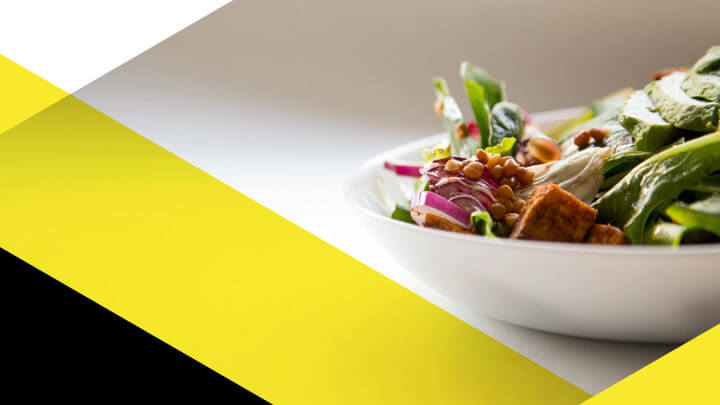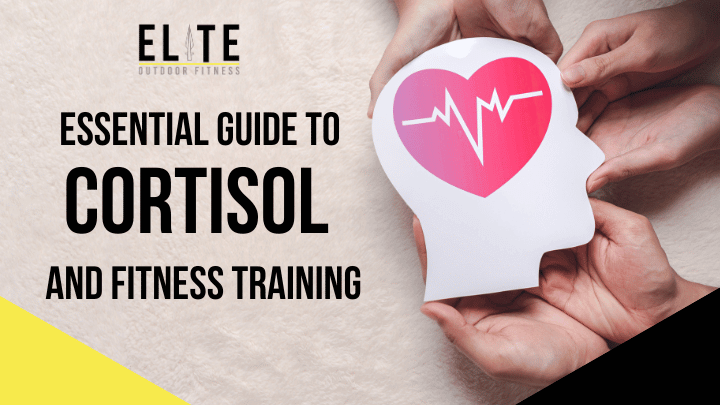Calorie Counting – ‘Calorie in’ isn’t the exact science many believe it is
I’ve never enjoyed counting my calories. Why? Because it’s not natural and eventually the numbers stop adding up.

I’ve never enjoyed counting my calories and I’ve yet to meet a single client who’s enjoyed it either. Why? Because it’s not natural and eventually the numbers stop adding up.
In order to lose weight, we’re told we need to be in a calorie deficit, yet I’ve met hundreds of people on a low calorie diet who simply can’t shift weight. I’ve even met a few who gained weight! So, why does calorie counting stop working and why do so many fail?
The first reason is simply the fact that the numbers just don’t add up. Food companies are allowed a 20% leeway when it comes to the accuracy of their food labels which mean your 100-calorie snack could contain more calories than you think. Once the initial weight-loss has stopped (this is usually because people are more conscious of WHAT and HOW MUCH they eat when they’re counting), the results stop and weight re-gain usually follows.
Then, there’s the fact that not every meal is the same, regardless of the name which dilutes the accuracy again. Your MyFitnessPal may have a lasagne logged in its system, but how big was the meal and did the chef use an extra layer of cheese? These small discrepancies may not seem like much, but when you’re only allowed 1,600cals per day, these small increases can quickly shoot you way over the top.
But, let’s say you had a day of home cooked meals and you knew EXACTLY how much was in each meal, rarely do those counting their calories consider the hormonal response from a variety of foods since they’re just trying to make the numbers fit.
100-calories from sweets is going to have a much different impact on your blood sugar levels than 100-calories of broccoli and is more than likely going to make you want more sweets and more food. This will make sticking to overall total very hard and extremely unfun.
I’ve also found that when people are calorie counting their focused more so on fitting in the foods which they like and no necessarily the foods which are best for them. This is in the long-term doesn’t teach them HOW to eat and re-enforces their bad habits which become out of control once they stop counting.
Lastly, the act of counting isn’t natural and can take the joy out of eating. Counting calories inevitably stops working either because you stop, your results do – the body has a defence mechanism in place in order to save energy during times of consistent low intake. Your body is literally fighting you on the weight loss front which makes this even harder the more you lose.
Now, this isn’t to say that calorie counting doesn’t work or that eating less won’t help you lose weight, they do! But, unless you’re focusing on the quality of your meals as well as other lifestyle factors, then you’re simply not going to be able to maintain the weight which you’ve lost because losing weight isn’t hard – KEEPING IT OFF IS! I love teaching my clients how to successfully maintain their weight loss – even just a small amount because they’ve NEVER been able to stop the fluctuation before. A small and progressive yearly loss is FAR BETTER than a big loss where the weight (and more) is regained.
If you’d like some more help managing your intake feel free to download a FREE guide on how to measure your intake WITHOUT counting a single calorie!
I’d love to know what you think in the comments section below.
Speak soon, JC.
2 thoughts on “Calorie Counting – ‘Calorie in’ isn’t the exact science many believe it is”
Write a Reply or Comment
Related Articles
If you've enjoyed this post why not try these related articles…




I disagree that calorie counting doesn’t work. It dies if you do it properly, and make allowances for the variability of portions etc. In 2008 I lost 45 lb in 23 weeks calorie counting. I used a Web site with a huge database of foods and their nutritional value, plus the ability to add in new foods and your own recipes, with weights of ingredients etc.
You also added in your exercise, and the system adjusted your calorie intake to keep you on your chosen loss rate. Your base rate naturally dropped as your weight went down (less of yourself to carry around….this is something many calorie counters don’t realise. A 1600 calorie a day allowance for a 1000 calorie deficit can become a 1500 allowance once you’ve lost a few pounds). No foods were banned. I tracked my chosen loss (2lb a week…. the site wouldn’t allow you to specify more) almost perfectly, to the level of being able to see the odd week when I’d gone over or under.
On reaching my goal, my calories increased to maintenance level, and it was just a matter of adjusting my eating habits to stay there. That worked well for a few years, but then some injury and other issues meant that my habits changed and I put weight on again. That IS an issue….just counting calories, losing the weight and then going back to your old habits won’t work. You’ll likely just regain what you lost. As you’re losing the weight, and then when you move onto maintenance, you need to be re-educating your body and palate to a level where you can maintain the weightloss within a pound or two. In my case, this meant doing more exercise if I either planned to or had eaten a big meal, or gone out for a few beers.
In March this year I decided to get it off again, and try to lose a couple of stones. I didn’t bother logging on the Web site this time, as I pretty much know the calorie content and portion sizes from my previous loss. Sure enough, I tracked 2lb a week and lost 25lb in 12 weeks.
I know dozens of people from that site who’ve done the same thing, with equal success, including one of the joint first women to finish the Spine Race a couple of years ago, and others who’ve gone from couch potato to running marathons, ultras etc.
It has to be approached in the right way, of course, and has to take account of individual lifestyle and body makeup, but certainly for me and for many others, eating a bit less and moving a bit more works, and calorie counting is one way of achieving this, at least until you’ve retrained your mind and body not to actually need close counting. It is basic physics….if you’re putting more into your body than you’re burning off, you’ll gain weight, and vice versa for losing it. For sure there’s a variability in metabolic rate, and in how sedentary or active people are, but the basic fact is there.
Hey Rob,
Thank you for this, I really appreciate the detail, your depth of knowledge, and sharing your personal success (congratulations, by the way!). However, there are a few key points in your story that illustrate exactly why I don’t endorse calorie counting as a permanent health solution.
When you stopped counting calories and reverted back to old habits (which is what we see with over 90% of dieters) you saw your weight increase again. Note that it wasn’t the precise act of counting the calories that made you lose weight, but it was the healthier choices you made over an extended period of time. It was your habits that helped you both lose and regain the weight, even though you connect your success with the act of counting calories.
People rarely make a lifelong commitment to change their shopping, exercise, cooking or eating habits when calorie counting. Rather, they commit to “dieting” (calorie counting) until they’ve hit their goal weight and spend the rest of their days struggling to maintain it. It teaches people to associate food with a number and to disassociate from the foods they crave and eat, WHY they crave those foods, and how it makes them FEEL. It also doesn’t teach people that what they eat (and the quantities in which they eat them!), is part of a complex interplay between our hormones, our sleep and stress patterns, how we perceive ourselves, treat/punish ourselves, and how we move and nourish ourselves for recovery.
Don’t get me wrong, I don’t think that everyone needs to “ban”, or “restrict” foods, but many people need to reduce the control that certain foods have over them and you can’t achieve this by counting calories or simply eating less. You need to eat differently. More fiber. More protein. More good fats. You need to eat for volume and satiety.
You mentioned re-educating your palate and retraining your mind (now this is what we really want to see!), but, you were unable to sustain this, despite your efforts and significant success first time around. Your understanding of the process is brilliant – a deficit to lose the weight followed by a maintenance phase – and this understanding is far superior to most who count their calories, but again this only reaffirms that it doesn’t work as a long-term solution.
We eat nutrients, not numbers, and calorie counting fails to address this. It makes us question “How many calories do I have left in my daily allowance?” rather than “How will this food make me feel?”; “How hungry am I?”; “Will this meal nourish me?”; “Is my digestion okay?”; and for women, “where am I in my cycle and how might this be affecting my mood/food preferences, etc”.
The “law of physics” (or the “calories in/calories out” – CICO) argument is also flawed as the human body is incredibly complex and our systems interconnect and impact each other more than we think. For example, if we don’t sleep properly, we crave sweets, which impacts our insulin, which impacts our fat storage, which makes us feel like rubbish, and so the cycle continues.
The CICO approach is often used as an accountability mechanism: ‘it’s easy to lose weight, you just have to consume fewer calories than you expend’. But, the hormonal responses from foods and a decrease in calorie intake and food volume, along with many other mechanisms, inevitably leads to weight-regain. Again, the result we see in more than 90% of dieters.
It’s safe to say that most people are overeating on energy, yet most experience some form of nutritional deficiency or struggle to keep their digestion moving. Reducing an already deficient diet isn’t going to bring about health or long-term results as you’re depriving an already depleted body. This is why my focus is on nourishment and my client’s entire lifestyle, not just restriction.
Yes, calorie counting works in the short-term, as you’ve shown, and for many, it’s a great way for people to educate themselves on the content of their food. But, it fails to address their nutritional needs and the mechanisms (insulin, ghrelin, leptin, cortisol) which make overconsumption very likely, in addition to access to cheap, nutrient-poor ‘convenience foods’.
In fact, most of my clients come to me after decades of calorie or point counting because they don’t want to do it ever again. They want a long term lifestyle solution.
Thanks again for your comment, keep in touch!